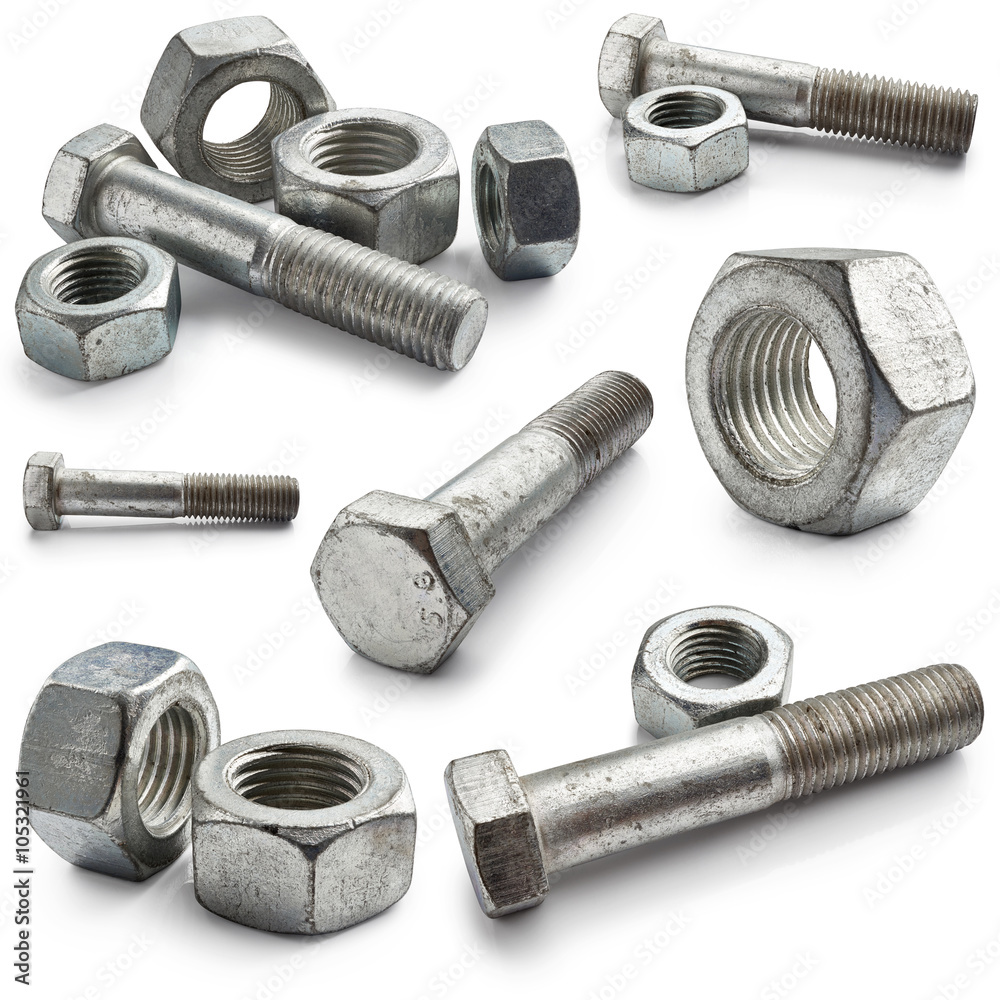As you begin any construction and DIY task, the importance of selecting the right fasteners is paramount. These fasteners serve as a foundation of numerous applications, providing structure, integrity, and safety. Given view it now of types available—each designed for specific functions—understanding the basics of nuts and bolts is essential for those who want to tackle fixes, build furniture, or embark on major renovations.
This comprehensive guide, we shall delve into the different types of nuts and bolts, exploring their uses and functions. Starting with the most common bolts to specialized fasteners, we’ll discuss everything you need to know to make informed choices and choose appropriate hardware for your tasks. If you're wondering about the differences between machine bolts and structural bolts and attempting to understand when to use a flange nut, this article is your comprehensive guide for understanding the realm of nuts and bolts.
Types of Fasteners and Fasteners
As it comes to comprehending nuts and bolts, it is essential to recognize the diverse types available and their particular applications. Bolts are typically classified based on their configuration and use. Standard types include hex bolts, which have a hexagonal head and are ideal for general fastening tasks; carriage fasteners, characterized by a rounded head and a square neck for added grip; and lag bolts, designed for heavy-duty applications and made with a wide, flat head that allows for greater torque. Each type serves individual purposes and is often chosen based on the requirements of the task at hand.
Nuts, the complements to bolts, also come in multiple shapes and sizes. Regular hex nuts are the most commonly used, allowing for safe fastening when matched with bolts. Locking nuts provide extra safety against loosening, making them suitable for high-vibration applications. Flanged nuts, which have a wider base, spread pressure more evenly and are used where a larger surface area is helpful. Understanding these options helps in selecting the right nut for different fastening situations, ensuring both safety and efficacy.
Besides standard types, specific nuts and bolts cater to unique requirements in specific industries. For instance, titanium bolts are favored in aerospace applications for their lightweight yet durable nature, while nylon lock nuts prevent loosening due to vibration. Understanding these differences not only aids in making informed choices but also enhances the overall integrity of constructions or repairs. Selecting the right combination of nuts and bolts is vital in achieving the desired strength and durability for any job.
Deciding the Correct Fastener
Choosing the appropriate fastener is vital for the effectiveness and durability of any task. The choice between nuts and nuts often hinges on the substances being combined and the necessary robustness. For timber applications, lag screws are commonly used due to their ability to secure firmly, while in metalworking, machine bolts with matching nuts are the optimum option. Grasping the specific requirements of your project, such as load capacity and surrounding factors, will assist you in choosing the best choice.
In addition, thread type plays a crucial role in fastener choice. Rough threads are typically more suitable for softer materials, which allows for faster assembly, while fine threads provide increased holding strength in harder materials. If you are uncertain which type to use, it is helpful to familiarize yourself with the details of threading, as well as the specifications for metric system and imperial fasteners. An educated decision can avert potential problems down the road, ensuring better operation and security.
In conclusion, taking into account the finish and substance of the fasteners is crucial. Stainless bolts offer superb rust resistance, making them suitable for outdoor tasks, while zinc-plated fasteners may serve well in dry environments. Always evaluate the particular environment your fasteners will face, including possible interaction to water or chemicals, to select materials that will endure the trial of time. This attention to detail in selecting the appropriate fastener will eventually enhance the durability and reliability of your work.
Materials & Finishes
As you consider bolts & nuts, the substances used play a key function in determining their efficacy & suitability for certain purposes. Bolts and Nuts Store consist of steel, copper alloy, and titanium, each delivering distinct advantages. Iron is favored for its strength & toughness, making it best for intensive projects. Brass, on the contrary, shows superb resilience to corrosion and is often employed in water systems and electrical uses. Ti is renowned for its lightweight properties and remarkable strength relative to weight, making it a top choice for aviation and high-tech technical applications.
Treatments greatly enhance the lifespan and performance of fastening devices. Zinc coatings & galvanizing are common methods for protecting steel bolts from oxidation, with galvanization providing a more robust protective layer. However, the choice of finish is contingent upon the environment in which the bolts operate. For example, stainless steel bolts inherently defend against corrosion without any additional coating, making them suitable for outdoor and marine settings where exposure to moisture is a factor of importance.
Comprehending the materials and coatings that are available helps ensure that you pick the right fasteners for your certain project needs. Whether you need fasteners that can tolerate hostile environments or those that provide consistent strength, understanding of materials will allow you to make educated decisions that enhance the durability & performance of your assembly.

